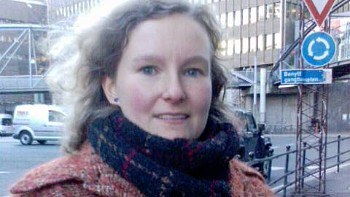Working for and with the society
Crowdsourcing and citizen participation needs to be done in a good and effective way for the community. This is crucial for it to be useful, says Susanne Lützenkirchen, Agency for Urban Environment, City of Oslo.

We have interviewed Susanne Lützenkirchen from the Agency for Urban Environment, City of Oslo about crowdsourcing, ICT and urban sustainability. She is a Senior Engineer in the department of Nature and Pollution and works with air quality issues in Oslo Municipality.
1. In the last decades, new ways of research have been implemented, referred to as crowdsourcing, citizen participation, citizen science, public participation and volunteered information. Where do you see the biggest advantage of such approaches?
People can get involved and public interest may arise.
Large amounts of data are available, and the data can be assembled in new ways. People can get involved and public interest may arise.
2. Where do you see the biggest challenge of such approaches?
Data quality and control.
Some groups in the community might be excluded.
There is also the potential to focus on issues that people think or feel are important even though these issues might not be so crucial, objectively.
Data security is another important area.
3. The vision of smart cities is nowadays a well-established path based on integrating multiple ICTs. Where do you see the greatest potential for the use and integration of multiples ICTs for urban sustainability?
There is great potential in several areas.
Nowadays the greatest potential is most likely in information and public awareness which can lead to changes in behaviour.
In the future, there is a great potential in automatisation and automatic regulation or control in certain fields, or of certain measures. As an example, regulation of toll road taxes according to monitored air pollution might be an idea.
4. What are the biggest challenges with digitalization and the integration of multiple ICTs for urban sustainability?
- Data security
- Data quality and quality control
- Responsibility issues
- Focus. The creation of many different systems/applications that lead to multiple and confusing information, rather than one valuable channel
5. What does the term social responsible tell you? Do you see it compatible with crowdsourcing and/or citizen participation in research?
Social responsible tells me that something is done in a good and effective way for the community. In my opinion this is very important, even crucial, if one wants to get something useful out of crowdsourcing or citizens participation.
It is important that research not only involves topics that are interesting for researchers when involving people directly.
Participants want to get something out of the research, or at least feel that it is meaningful for them or the society they live in. This is important in one study itself, but also important for motivation to participate in future studies.
Social responsible tells me that something is done in a good and effective way for the community.
---------------------------------
Do you have a question or something to add? Leave a comment below.
This blog post is part of a series where we interview stakeholders about ICT, crowdsourcing, research and urban sustainability.
You can take part in the dialogue by using the hashtag #crowds4research
iResponse on twitter: @iresponse_rri